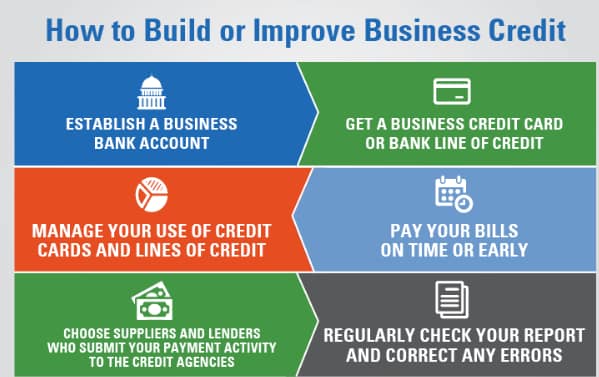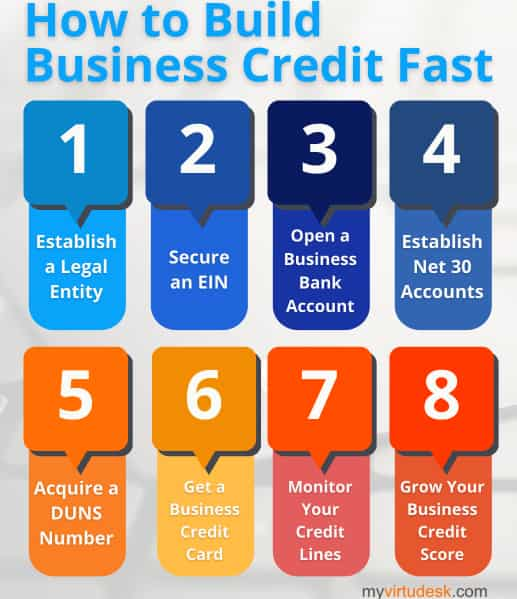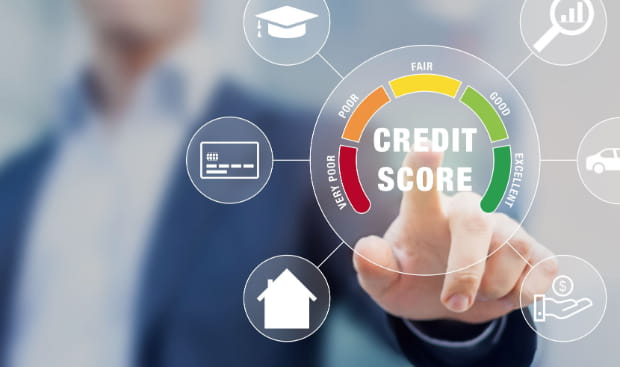Contents
After the pandemic period, especially with the spread of e-commerce, everyone started to establish their own companies and sell products on social media or the internet. Of course, two realities naturally come across everyone who starts to sell something. “How much tax should be paid and what is business credit“. Since it is the subject of this article, we will look for a detailed answer to the second question.
After all, whether you establish a real person sole proprietorship (tradesman) or a limited or corporation company, it is difficult to be successful without developing your financial literacy. At the very least, you should know the characteristics of consumer credit and the difference between commercial credits and personal loans.
Then, it will be time for the question of what is business credit and its details. After all, if you have a company or are a tradesman, instead of investing your own resources in the business, you may want to use the credit as a leverage and earn money from the credit amounts. In addition, capital companies will want to make new investments in their companies by taking out commercial credits if their financial statements and financial analysis results and credit scores are sufficient.

All these processes are things that happen every day in the business world. The important thing here is to do financial management well and to master the basic concepts and important points. This is basically what we want to do in this article.
What is Business Credit? Understanding the Basics
When looking for an answer to the question of what is business credit and how to get it, the first thing we will do is to give basic definitions. In this context, it should be noted that commercial credit is one of the financing products offered by banks to meet the growth, investment and working capital needs of companies or businesses. This type of credit is of great importance in terms of companies being able to continue their daily routine activities, make new investments or regulate cash flow.
Commercial credits are usually provided in return for a certain collateral, signature or guarantee and are evaluated by considering the credit score and history of the business, its financial status and market conditions.
Companies or real person traders, namely sole proprietorships, overcome capital difficulties thanks to commercial credit, while finding the opportunity to increase their competitive power and achieve sustainable growth goals.
In this article, we will discuss in detail what is business credit, what its features are and how the credit process works.
Among the financing methods for tradesmen such as businesses or firms, commercial credit stands out as one of the most common and effective tools. Especially small and medium-sized businesses prefer commercial credit to meet their working capital or investment needs. Credit providing banks meticulously examine the financial structure, past performance and future projections of the business; thus, they determine a credit limit that minimizes risks and is suitable for the business.

Why Commercial Loan Matters for Entrepreneurs
Fluctuations in financial markets increase the importance of commercial credit even more when companies need additional resources. Businesses can ensure their financial sustainability and move forward with solid steps in the market by managing their credits correctly. At this point, it should be noted that the correct credit limit and term are of vital importance for businesses.
In other words, if you do not take out a loan with a term compatible with your cash flow, no matter how profitable you are, if you delay the instalment of the loan because you do not have cash on hand, your score will be negatively affected and your commercial reputation will be damaged.
Steps to Establish Business Credit from Scratch
When asked what is business credit, it should not be forgotten that this credit is one of the basic building blocks of the growth and development strategies of businesses.
In the commercial credit products that banks offer to meet the financial needs of businesses, they take into consideration elements such as the credit amount, interest rates, maturity and repayment plans, and the company’s financial data. In this type of credit, the financial status and credit history of the business are among the determining factors. The financial reports, income-expense statements, and documents such as balance sheets and income statements submitted by businesses are meticulously examined during the credit evaluation process of banks. This process creates a reliable and sustainable financing model for both banks and companies.
The commercial credit process begins with determining the needs of the company. In the first step, company owners clarify their financial needs and investment goals; they determine for which purposes they will use credit. At this stage, the cash flow within the business and future projections are analyzed in detail. Then, business owners apply to banks, submit their credit requests, and submit the necessary documents.
The documents that the company will provide when taking out a loan are usually:
- Tax certificate
- Signature circular
- Last year’s corporate tax return and balance sheet
- Last period’s provisional corporate tax return and balance sheet
- Documents, if any, regarding the assets of the company partners.
After receiving the applications, banks evaluate the financial structure of the business, its position in the sector and its past performance, and offer an appropriate credit limit and repayment plan.
The criteria that banks take into consideration during the loan process are of great importance.

Loan Criteria of Banks
When banks examine commercial loan requests, they take the following into consideration:
- The business’s credit score,
- The duration of its activity,
- The ability to provide collateral and
- Its current financial situation
- The payment status of loans used in the past
- Is there a problem with the company’s bill payments?
- The movements in the company’s account at the relevant bank
- The individual credit scores of the company partners
are taken into consideration during the loan approval process.
Banks determine the most suitable loan product for the business according to these criteria and present their offers.
Step by Step Business Credit Application Process
At this point, while answering the question of what is business credit, we would like to summarize the stages from application to credit being transferred to the account.
- Perform Needs Analysis: Determine why you need a loan and calculate how much financing you need. Remember, excessive credit will overload you.
- Choose the Right Loan Type: Determine the commercial loan type that suits your business’s needs (business loan, investment loan, revolving loan, etc.).
- Compare Banks and Terms: Examine the interest rates, term options and additional costs offered by different banks and determine the most suitable option.
- Prepare the Required Documents: Prepare all the documents requested by the bank, such as tax plate, trade registry gazette, balance sheet, income statement, business activity certificate.
- Apply: Submit your application to the branch of the bank you have chosen or via internet/mobile banking.
- Preliminary Assessment Process: The bank conducts the pre-approval process by examining your credit score, the financial status of your business and your repayment capacity.
- Collateral and Guarantor Review: The bank evaluates the assets and guarantor information provided as collateral for the loan.
- Preparation of the Loan Agreement: When the loan is approved, a contract is prepared that includes the interest rate, term, repayment schedule and other terms.
- Signing the Agreement: The business owner or authorized person signs the loan agreement presented by the bank.
- Legal and Operational Checks: The bank completes the transactions by performing final checks after the agreement.
- Transfer of Loan to Account: Once the entire process is complete, the loan amount is transferred to the business account and becomes ready for use.

Business Credits: Answers to FAQ!
After reaching this stage, it is time for the most frequently asked questions and answers about what is business credit and how to get one. Now let’s analyze this issue together.
- What documents are required to get a commercial loan? : During the loan application, documents showing the financial status and past performance of the business such as tax plate, trade registry gazette, balance sheet, income statement, activity certificate are usually requested. There may also be additional documents requested by the bank. It is crucial for the question “what is business credit?”
- How does the commercial loan process work? : It starts with the business determining its credit need, choosing the appropriate credit product, preparing the documents and entering the application process. After the preliminary evaluation and risk analysis, the bank prepares the credit agreement and transfers the approved amount to the account.
- How are commercial loan interest rates determined? : Interest rates are determined depending on factors such as the bank’s credit policies, the financial status of the business, credit score, collateral and market conditions. Both fixed and variable interest rates can be found.
- Is collateral required for a commercial loan? : In most commercial loan applications, banks request collateral in order to minimize credit risk. Real estate, machinery, securities or guarantors can be shown as collateral. It is also important for the question “what is business credit?”
- Is credit score important for obtaining a commercial loan? : Yes, the business’s credit score and past debt payment performance play an important role in the approval of the loan application. A good credit score increases the chance of obtaining more favourable interest rates and credit limits.
- What needs are met with a commercial loan?: Commercial loans provide financing in many areas such as working capital needs, investment projects, equipment purchases, and stock supply. It supports the growth and expansion goals of the business.
